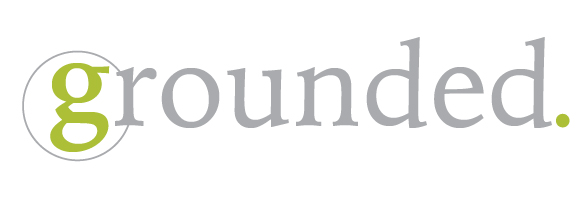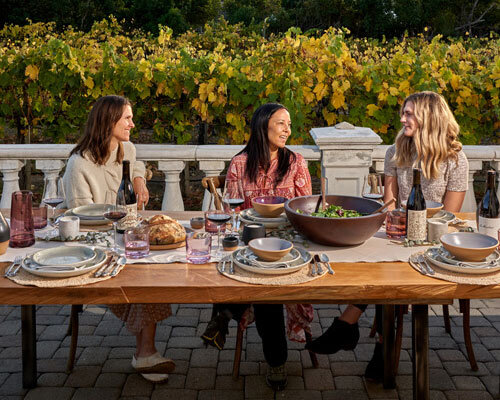Dr. Lilli Link is a board-certified internist practicing functional medicine since 2006. She completed her training in internal medicine in 1997 at New York-Presbyterian Medical Center and then studied lifestyle change and cancer at Weill Cornell Medical College. She also completed a fellowship in Cancer Epidemiology at Columbia University’s Mailman School of Public Health, where she continued her research on diet and cancer. Dr. Link currently practices functional/lifestyle medicine at Parsley Health in New York City and resides in New York City with her husband, three children, and beloved rescue dog.
Can you tell us a little about yourself and what inspired you to become a functional medical doctor?
My grandparents were ‘health-minded’ and part of the ‘Hygiene Society.’ For years, my father made the first and only electric wheatgrass juicer, the Wheateena. So, growing up, I was aware of alternative ways of healing. But in medical school, I was completely indoctrinated to think that diet was irrelevant for most diseases, and my holistic upbringing fell by the wayside.
When I was 31 years old, about a year after completing my internal medicine residency at Columbia Presbyterian Medical Center in NYC, I was diagnosed with an aggressive form of cancer called a sarcoma. Because my odds for survival were not very good, I added complementary therapies, focusing on diet and lifestyle, to my conventional regimen.
I learned about functional medicine a few years after my cancer diagnosis and was thrilled to discover that this truly integrative form of medicine was already established.
How does functional medicine differ from conventional medicine in its approach to disease and patient care?
Conventional medicine is interested primarily in treating the symptoms of a disease. For example, if someone has high blood pressure, traditional medicine looks for ways to lower blood pressure, whereas functional medicine will also try to address the underlying causes of high blood pressure, such as stress, diet, and sleep.
Functional medicine is root cause medicine, which means we listen to a person’s story, pay attention to their health history from before they were even born, and do in-depth testing to look for the underlying causes of their health challenges. If you can find the cause of a disease, that gives you a much better chance of actually healing from it. At Parsley Health we practice functional medicine.
What led you to Parsley Health?
I had my own solo holistic healthcare practice for years but wanted the opportunity to work in a group practice. Our healthcare team learns so much from each other every day, and this sharing of knowledge benefits our members greatly. My growth as a holistic practitioner has been exponential since I joined Parsley over five years ago.
How do you think Parsley is changing the landscape of medicine?
It’s exciting to be part of a company that is doing just that - changing the landscape of medicine. By offering virtual care throughout the country and in-person care in New York and California, we are making functional medicine accessible to people all over the country.
You’ve shared with me that you follow a vegan diet. Can you explain what made you go 100% plant-based and what benefits you’ve experienced from eating this way?
When you look at the medical literature to see what foods are consistently associated with health and longevity, it’s plant-based food. That isn’t the case for animal-based foods. As a cancer survivor, I need to follow a completely anti-cancer diet which is why I follow a plant-focused, vegan diet. It is also important to me that a vegan diet spares animal suffering and death and may be better for the planet.
I want to point out that a vegan diet does not automatically equal a healthy one. Sugar, soda, and pasta are all vegan foods. Adhering to a healthy vegan diet that is tasty and satisfying takes some effort.
What advice would you give someone interested in adopting a vegan lifestyle?
For starters, it’s good to know that the only nutrient you won’t get enough of from a vegan diet is vitamin B12, so you would need to take a B12 supplement. It’s also helpful to know where your main protein sources come from: Nuts, seeds, and beans, including soy, are the primary plant protein sources. Finally, aim to fill at least half your plate with vegetables at lunch and dinner.
As a doctor and mom to three children, how do you prioritize wellness in your life?
Not as well as I’d like to! Eating healthfully comes pretty easily to me. But getting enough exercise and sleep are challenges. My family and dog keep me busy, and I love my work, so I’m not great at creating boundaries at home. It’s helpful that I’m constantly reading studies and attending conferences that remind me how vital exercise and sleep are for good health. So you’ll frequently find me executing new plans to do a better job with my self-care.
Life has been throwing us many curve balls these past few years. How do you ground yourself and find a place of calm these days?
COVID has indeed been life-altering for all of us. I have been lucky that it happened at a time in my life when I had the company of my family and dog and have been able to continue to work as a holistic doctor with virtual healthcare. At this point, COVID is not as frightening as it once was. Between vaccinations and antiviral medications, we know a lot about how to avoid getting very sick from it. It’s still hard not being able to socialize normally without worrying that you’ll get COVID, but I am grateful for the many things I can do safely.
What is one simple thing readers can do today to improve their health and support healthy aging?
If you all could join me in trying to get a good night’s sleep most nights, that would be amazing! It means not working for a couple of hours before bedtime, shutting down addictive things, like Netflix shows and Tik Tok at a reasonable hour, and avoiding caffeine later in the day. It’s astounding how many diseases are associated with inadequate sleep. But that’s the long-term benefit. Short-term, it makes for a great start to the next day!
Where can readers find you?
You can find me here at Parsley! If you’d like to join, use the code LINK200 and get $200 off your first year of membership.
Thanks you Dr. Link for taking the time to chat with us about functional medicine, plant-based eating and the benefits of an integrative approach to wellness.






